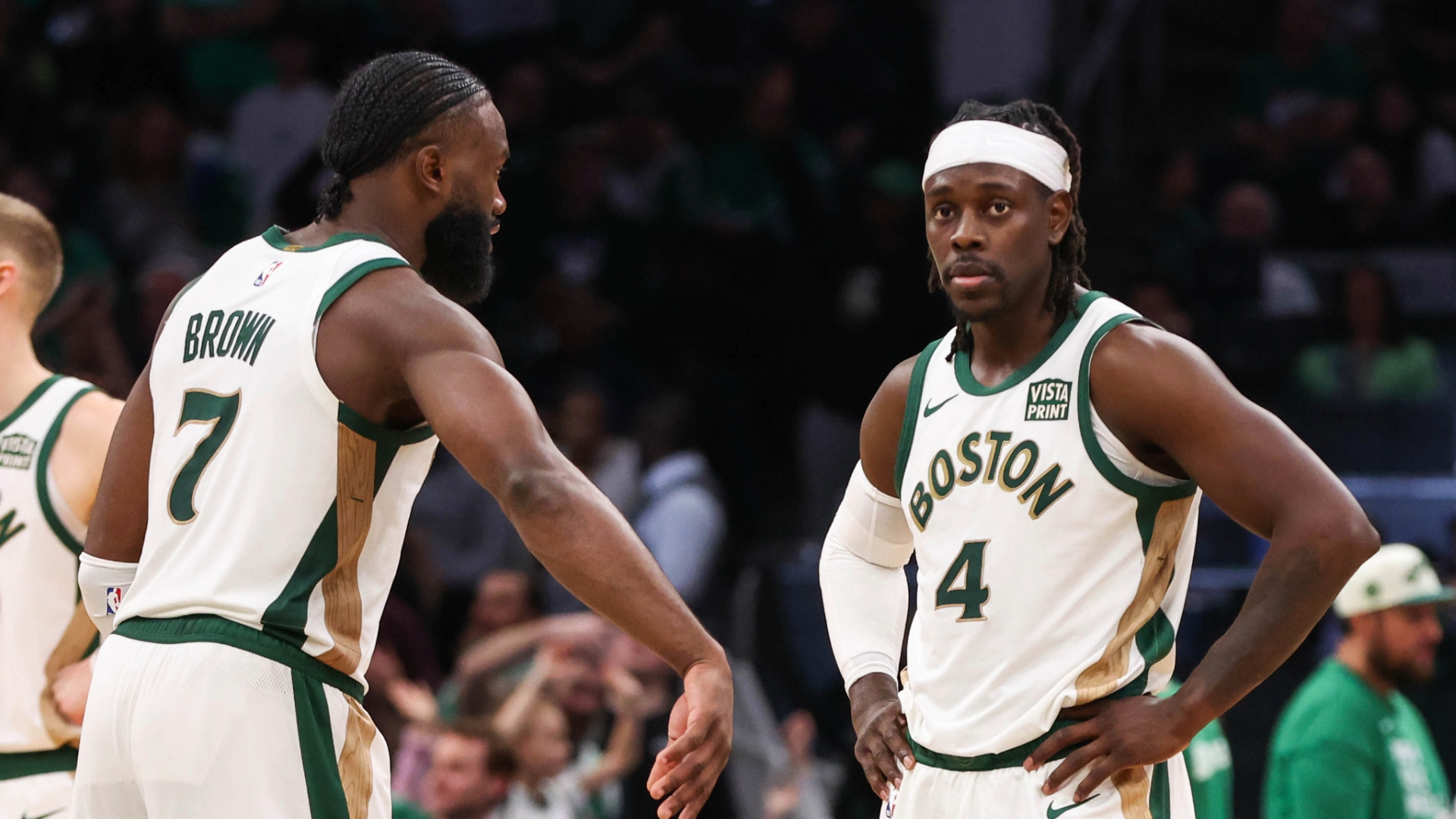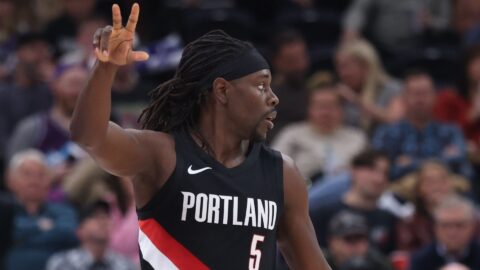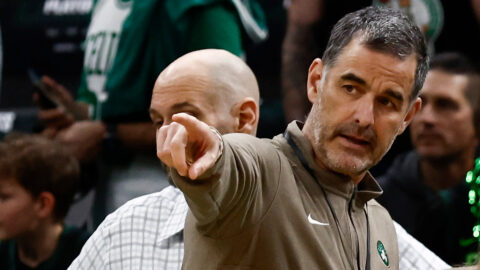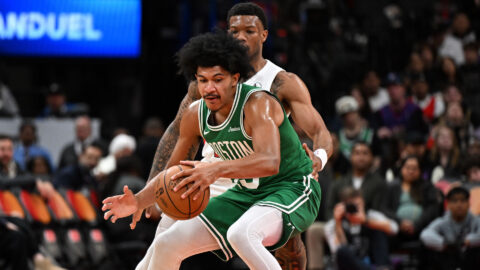Laura Misumi was never a record-breaking javelin thrower for the Lexington High School track and field team. She competed in the javelin, but mentioned it only in passing, almost apologetically, when asked if she ever played organized sports.
Misumi, who is of Japanese descent, was exceptional in at least one respect, however. Unlike many young Asian-Americans, she was on the team.
Jeremy Lin’s emergence as a star guard for the New York Knicks has thrilled sports fans worldwide, spawning “Linsanity,” “Sensationa-Lin-sm” and countless other nicknames for the craze. The underdog story of an undrafted player out of Harvard, twice waived by other NBA teams, finally getting an opportunity and thriving in the world’s largest media market has captivated fans of all ages and ethinicities.
He also is the NBA’s first American of Chinese or Taiwanese descent.
For many Asian-Americans, who have long faced stereotypes about their perceived lack of athletic ability, the excitement has left them delirious, but also reflective.
“I think it’s an incredible underdog story,” said Misumi, 24, a law student at Northeastern University, who recalls being one of the few Asian-American athletes at her school. “I think of it as a gateway to start changing people’s minds. It’s really important to show that talent comes in all races and colors, and hopefully, Jeremy Lin can be an example of that.”
Sports have seen their share of noteworthy Asian athletes in the last 20 years. Hideo Nomo set off “Nomomania” with his corkscrew windup in 1995, when he led the National League in strikeouts, made the All-Star team and won the Rookie of the Year award. Ichiro Suzuki came to the United States from Japan in 2001 and reeled off 10 straight seasons with at least 200 hits for the Seattle Mariners. Yao Ming was a cultural icon with the Houston Rockets on both sides of the Pacific Ocean before injuries forced him to retire after last season.
Beyond the Olympic games, when athletes such as Apolo Ohno, Michelle Kwan and Kristi Yamaguchi have captured America’s attention for a few short weeks every four years, Asian-American sports fans have had few American-born Asian athletes to embrace.
Mark Liu‘s family has been in the U.S. since the 1850s, yet the Chinese-American from Brookline said he is often asked, “Where are you from?” When he responds, “Brookline,” the questioner often says, “No, before that.” Before Lin, the only Asian-American basketball player Liu was aware of was a classmate who played for Brookline High.
Finally, Liu said, an athlete in the four major pro sports not only looks like him but shares some of his own experiences.
“Having an Asian-American in the spotlight makes it particularly validating,” said Liu, 29, a community organizer for the Chinese Progressive Association in Boston, who watched on TV as Lin lit up the Lakers for 38 points on Feb. 10 in a game in which neither Amare Stoudemire nor Carmelo Anthony played due to injury. “It’s important, considering Asian-American history, Chinese immigrants being excluded, Japanese Americans being interned and all that.”
Beneath the adulation, though, is an element that makes Misumi uneasy. Lin’s race is an obvious factor in the phenomenon of Linsanity, and the handful of blatantly racist comments like those by boxer Floyd Mayweather and ESPN’s “Chink in the Armor” headline have been swiftly condemned in the media. Yet the unspoken, possibly patronizing, element of the cheering troubles her.
“The whole underdog aspect plays out big, especially coming from a team that has such a powerful offense,” Misumi said. “It’s hard to imagine anyone upstaging Amare and Melo. That fact alone is pretty impressive.
“But I also wonder if it has something to do with the novelty of it. I’ve seen the people courtside with signs saying things that are pretty derogatory, like that fake Chinese calligraphy. I wonder about that sometimes, that it’s not necessarily genuine excitement about this new guy who’s blazing trails for other Asian-American athletes, but ‘Look at this crazy Chinese guy!'”
That type of unwitting prejudice has shown up in the seemingly most innocent of places.When Lin signed with the Golden State Warriors, his first NBA team, in 2010, he received a letter of encouragement from Wat Misaka, a 1947 Knicks draft pick of Japanese descent. Misaka, who is believed to be the first non-white player in the NBA, reportedly told Lin, “Ganbare,” which roughly translates to “hang in there” in Japanese.
ESPN.com reporter Jared Zwerling retold the story on Feb. 9. It was supposed to be a lighthearted take on Lin mania, but readers ripped Zwerling in the comments section of the website.
“Moron,” wrote a user with the handle Atl_Card. “The Chinese despise the Japanese. Just because these two have been labeled by the PC army as ‘Asian Americans’ doesn’t mean they share anything in common. The Japanese murdered, raped and enslaved hundreds of thousands of Chinese (and yes, Taiwanese people are Chinese people) during World War II.”
“Jared, do you know that Chinese is different from Japanese?” wrote user GM131. “Even if they are still both American born, it’s like reporting to see what a Puerto Rican player has to say about the success of a Dominican player.”
And so on.
Aside from the fact that, contrary to GM131’s assumption, Puerto Rican baseball players of the past were indeed heroes to later Dominican players — Dominican-born Cubs slugger Sammy Sosa wore uniform No. 21 in honor of Puerto Rican-born Pirates Hall of Famer Roberto Clemente, who is revered throughout Latin America — the readers’ comments reflected a view that remains pervasive in the U.S.: That all Chinese-Americans by their nature identify more strongly with Chinese, Japanese-Americans identify more with Japanese, Korean-Americans identify more with Koreans, etc., than with fellow Asian-Americans.
The perception is accurate for some Asian-Americans, but for many that reality aged out decades ago, said Jean Hibino, executive director of the Nisei Student Relocation Commemorative Fund, a national scholarship program founded by Nisei, the children of people of Japanese descent who were interned during World War II.
“It is different from [Misaka’s] time, when Chinese went out of their way to say they weren’t Japanese,” Hibino said. “They would say, ‘I’m Chinese-American,’ because of the internment, which would distinguish myself from them.”
The Pan-Asian-American movement of the 1970s sought to alter that way of thought. Hibino encountered an exclusionary mind-set similar to the ESPN.com readers’ in 1980, when the NSRC set out to create opportunities in higher education for underserved Southeast-Asian communities.
“There was a pushback — ‘Why don’t you help out your own kind?'” Hibino said. “The Nisei said, ‘We’re doing well enough, most of us, to send our own children to college, but there’s another group of people who could use the help.”
In Liu’s opinion, there is no need to exclude anyone, especially non-Chinese Asian-Americans, from the Linsanity.
“In this country, we’re all lumped together on the way we look anyway, so when someone makes it that looks like us, it validates all of us,” Liu said. “Anyone who endures racist taunts, it’s a win for everybody. The more love he gets, the better.”
Talking on the phone while following the Knicks-Raptors game on the Internet, Hibino let out a cry. The game tracker informed her that Lin had just hit a game-winning 3-pointer, and she could not contain her glee.
“Oh, my gosh!” she exclaimed. “I can’t believe it. It’s just mythic. I am quite pleased. And I don’t even like the Knicks!”
After a few minutes, Hibino managed to settle down.
“We’re not separate like we were before the war,” she said. “Yes, I’m Japanese-American, but I’m Asian-American, and any kind of victory Asian-Americans have, it’s great. Plus, he beat the Lakers, so that’s got to be worth something, too.”
The question now is whether Linsanity will become permanent or just a brief blip in a shortened season. No matter what, he has already left an indelible mark on the community he represents.



